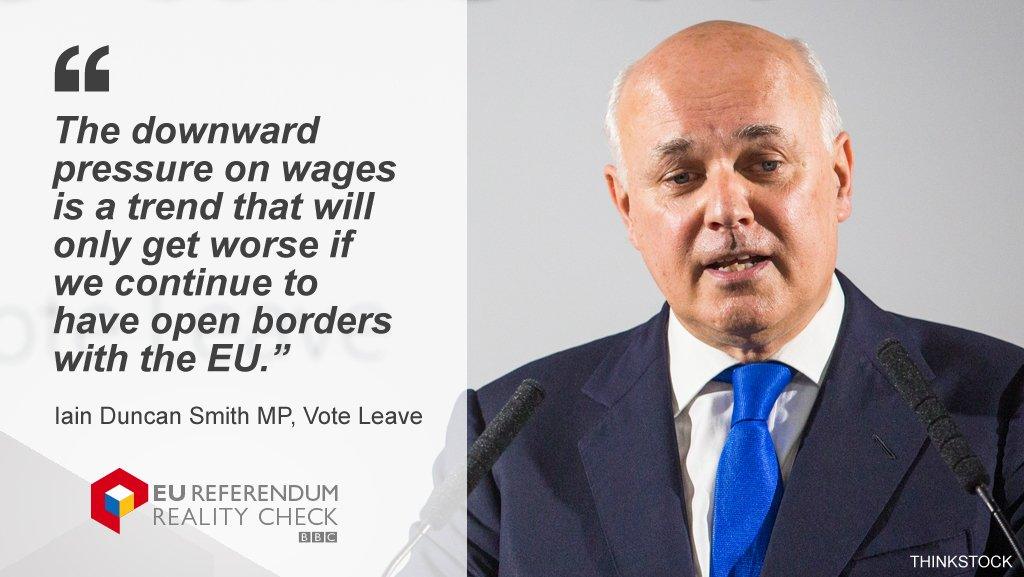Reality Check: Would staying in the EU reduce wages?
- Published

The Claim: The downward pressure on wages is a trend that will only get worse if we continue to have open borders with the EU.
Reality Check verdict: Migration does appear to have put pressure on wages, but there is some evidence that leaving the EU would reduce them even more.
Leave campaigner Iain Duncan Smith said in a speech this morning: "The downward pressure on wages is a trend that will only get worse if we continue to have open borders with the EU."
His assertion that immigration has put pressure on wages is supported by a paper from the Bank of England, external last year.
It found that the area in which there had been the greatest effect on wages had been for semi-skilled and unskilled workers in the services sector, where a 10 percentage point increase in the proportion of immigrants working in the sector would be associated with a 1.88% reduction in pay.
A 10 percentage point increase in immigrants working in a sector is a lot. The latest labour market figures, external from the Office for National Statistics estimated that between 1997 and 2015, the proportion of non-UK nationals working in the UK rose from 3.8% to 10.2%, an increase of 6.4 percentage points over 18 years.
But a report from, external the National Institute of Economic and Social Research (NIESR) came out on the same day as Mr Duncan Smith's speech.
It tried to forecast what would happen to real wages if the UK left the EU.
In a central scenario, involving reverting to World Trade Organization rules but with no impact on productivity, it predicted that by 2030, real wages would be between 4.6% and 6.3% lower than they would be if we stayed in.
We have warned in the past about the problems with economic modelling in general, and a particular problem with this model is that, as in the Treasury's model, it does not take into account any impact that leaving the EU would have on levels of migration.
Even so, it suggests that the amount that wages would be reduced by the loss of economic growth predicted by the model would dwarf the effect of falling migration if the Bank of England's model is correct.



- Published22 February 2016
